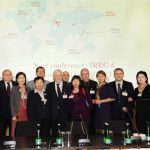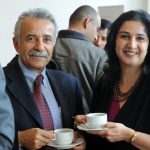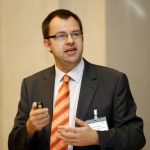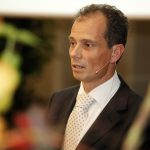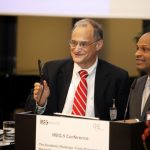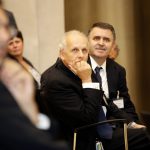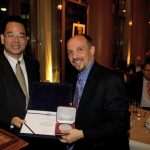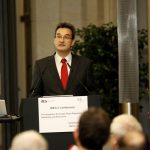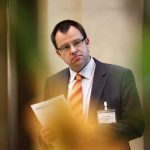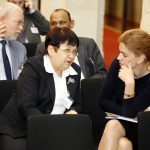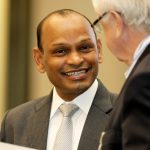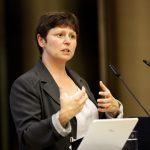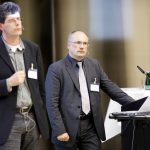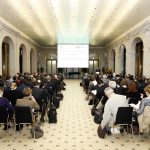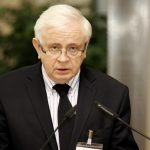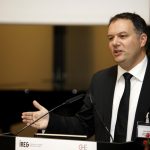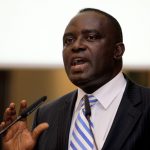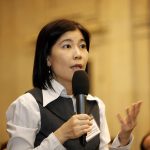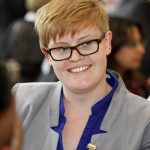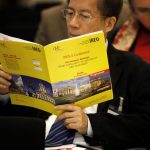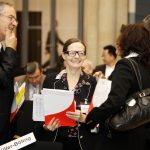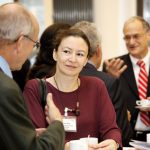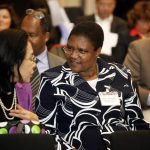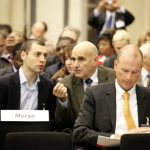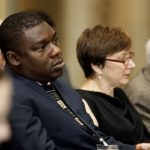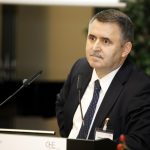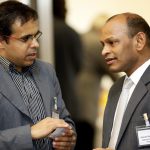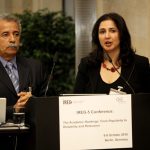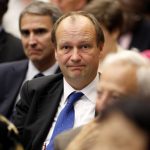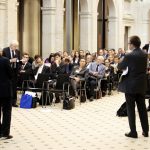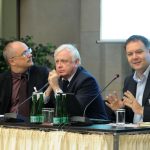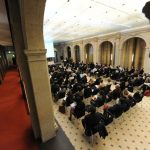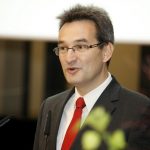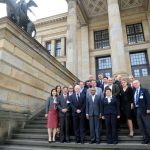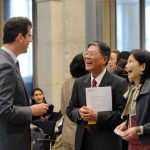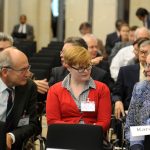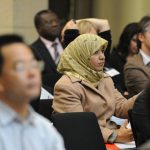
IREG-6 - Post conference note
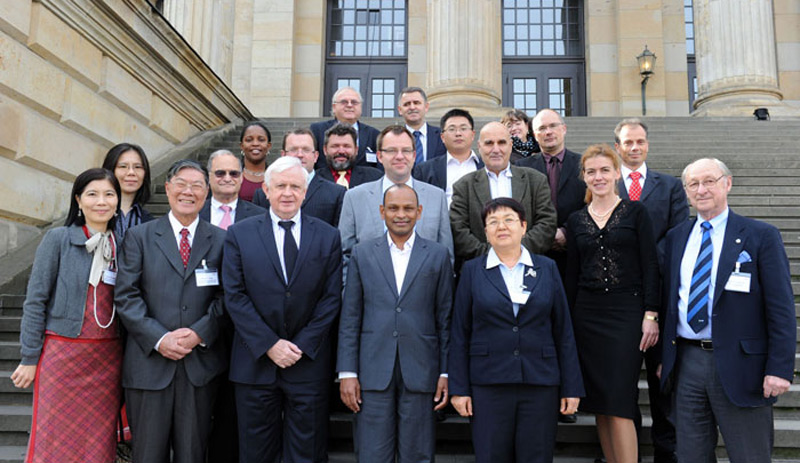
Over 160 experts on university rankings and representatives of academic world from 50 countries met in Berlin 6-8 October 2010 at the IREG-5 Conference: The Academic Rankings from Popularity to Reliability. The Conference was organized by the IREG Observatory on Academic Ranking and Excellence and the Centre for Higher Education Development CHE in cooperation with the German Federal Ministry of Education and Research and with support of German Academic Exchange Service (DAAD).
The importance of the work carried out by experts on rankings was stressed by Peter Greisler, head of Directorate Universities of the German Federal Ministry of Education and Research, who remarked that if IREG didn’t already exist, it would have to be invented.
Several “hot” ranking issues were presented and discussed at the conference. Gero Federkeil of the CHE Centre for Development of Higher Education spoke of the on-going EU financed project U-Multiranking and pointed out that the project generates broad interest. Over 150 institutions in Europe, Asia and Latin America expressed interest in participation in a pilot test. Alex Usher (Canada) and Peter Okebukola (Nigeria) spoke about academic rankings in developing countries. Mark Marhl (Slovenia) discussed the issue of the “third mission” in academic rankings, and Waldemar Siwinski (Poland) spoke about the need to build a bridge between international and national rankings.
IREG Observatory on Academic Ranking and Excellence is an association of ranking organizations, universities and other organizations, interested is the improvement of the quality of international and national rankings of higher education. At present, it has 15 member organizations from Europe, Asia and North America. The conference in Berlin was the 5th gathering of experts on academic rankings. Previous IREG meetings took place in Warsaw in 2002 (IREG-0), Washington in 2004 (IREG-1), Berlin in 2006 (IREG-2), Shanghai in 2007 (IREG-3), Astana in 2009 (IREG-4). The next IREG-6 Conference will be held in Taipei in April, 2012.
Jamie P. Merisotis, President of the Lumina Foundation and former Director of Institute for Higher Education Policy (USA) and Detlef Müller-Böling, former Director of CHE (Germany), for their significant contribution to the creation of IREG were distinguished by Jan Sadlak, President of IREG Observatory with medals and Honorary Membership of the IREG Observatory on Academic Ranking and Excellence.
The General Assembly of IREG Observatory that convened following the conference accepted and welcomed the National University of Singapore as its new member. Several other organizations expressed interest in joining the association.
more information on: www.ireg-observatory.org
contact: secretariat@ireg-observatory.org
Invitation
IREG-5 Conference, Berlin 6-8 October 2010, will be the fifth time that representatives of the ranking organizations [“rankers”], experts on quality assurance and academic excellence as well as stake-holders and interested parties on academic rankings will meet to discus various topics concerning a phenomenon which is now an important factor in higher education analyses, policy-making and practice.
In a relatively brief time “academic rankings” have become a global phenomenon. The proliferation of rankings is one aspect of the growing demand for broadly-understood information about higher education and its institutions. Evidently, rankings are only one of a number of providers of information about higher education. At the same time research findings studying rankings demonstrate that different groups of stake-holders – politicians, employers, academic leaders, students and their families, etc. are in need of quantified evidence about quality, performance and characteristics of the whole institutions or specific study program. Attractiveness or appeal of rankings is in its synthetic interpretation of the complex phenomenon.
The growing attention to academic rankings led to a rapid growth in the number and kind of rankings. Like in the previous meetings of IREG also this meeting is going to identify and present new developments in national, regional and international rankings
If academic ranking is to be seriously viewed as informative instrument reflecting performance and quality of the institutions, study programs or other domains of functioning of higher education it also needs to meet a specific set of quality criteria. The first step in this direction has been adoption at the IREG meeting held in May 2006 of the Berlin Principles on Ranking of Higher Education Institutions. The Berlin Principles has articulated 16 standards and guidelines of good practice. Implementation of this important initiative has been one of the reasons for creation of the IREG Observatory on Academic Rankings and Excellence. The next step undertaken by IREG in improving rankings has been elaboration of fact sheet, criteria and procedures for conducting “ranking audit” in order to obtain a quality label “IREG recognized”.
It is worthy to keep in mind what such internationally renowned scholar of higher education as Philip Altbach pointed out at the World Conference on Higher Education (UNESCO, Paris, July 2009) when referring to rankings in the context of main trends in higher education; “rankings need to be taken seriously”. He also mention that “rankings do not push for a competition among higher education institutions (as its critics like to argue) but they reflect growing global competition in higher education”. IREG-5 is going to give a good opportunity to have a serious look at the current developments in academic rankings contributing also to a better understanding of a global competition in higher education. Participants of the conference will have first hand access to leading practitioners and world-recognized experts on university ranking, bibliometric and quality assessment of higher education.
There are a limited number of places available, and those interested are asked to register early.
Programme
IREG-5 Conference
The Academic Rankings: From Popularity to Reliability and Relevance
organized by:
IREG Observatory on Academic Rankings and Excellence
and
CHE-Centre for Educational Development, Gutersloh
With support of:
German Academic Exchange Service (DAAD)
Berlin, 6-8 October 2010
Conference venue (all sessions): Berlin-Brandenburg Academy of Science
(Berlin-Brandenburgische Akademie der Wissenschaften),
Jägerstraße 22/23
PRELIMINARY AGENDA
Wednesday, 6 October
Whole day Arrival of participants
16.00 – 18.00Meeting of the Executive Committee of IREG Observatory [closed session]
Venue: artotel Berlin Mitte, Wallstr. 70-73
19.30 – 22.00Welcome Reception
Location: Karlsson Berlin, Taubenstr. 30
Thursday, 7 October
8.30 – 9.30 Registration
9.30 – 10.00 Opening Session: Welcome and Introduction
- Peter Greisler, Ministerial Counselor, Federal Ministry of Education and Research, Germany;
- Frank Ziegele, Director of CHE, Germany
- Jan Sadlak, President of IREG Observatory
10.00 – 12:30 First Session: New Developments in National and International Rankings
Chair: Frank Ziegele, Director of CHE
- Alex Usher, President of Higher Education Strategies Associates, Toronto, Canada:
Let the Sun Shine In: The Use of Academic Rankings in Developing Countries
- Peter Okebukola, Chairman of Council, Osun State University, and former Executive Secretary, National Universities Commission, Nigeria:
Trends in Academic Rankings in the Nigerian University System
- Luis Piscoya, Professor at San Marcos University of Lima, Peru:
Rankings in Peru in Context of Recent Developments in Higher Education in the Latin America
- Jamil Salmi, Tertiary Education Coordinator, the World Bank, Washington D.C. , USA:
A New Approach for Measuring the Performance of Tertiary Education Systems
- Waldemar Siwiński, Vice-President of IREG-Observatory, President of Perspektywy Education Foundation, Warsaw, Poland:
Building a Bridge between the National and International Rankings
12:30 – 14.00 Lunch
14.00 – 16.00 Second Session: Regional Classification and Rankings Initiatives
Chair: Liu Nian Cai, Vice-President of IREG-Observatory, Dean of the Graduate School of Education, Shanghai Jiao Tong University, China
- Adnan El-Amine, Lebanese Association for Educational Studies, and Rajika Bhandari, Deputy Vice President, Research and Evaluation, Institute of International Education (IIE), New York, USA:
Classifying Higher Education Institutions in the MENA Region [Middle East and North Africa]: A Pilot Study
- Diane Lalancette, Analyst, OECD Directorate for Education, Paris, France:
Assessment of Higher Education Learning Outcomes: a groundbreaking initiative to assess quality in higher education on an international scale
New Ranking Initiatives from Europe:
- Gero Federkeil, Vice-President IREG Observatory and Frans Kaiser, Centre for Higher Education Policy Studies (CHEPS), CHERPA-Network, Germany/ the Netherlands:
Developing and Testing the Feasibility of a Multi-dimensional Global University Ranking – the U-Multirank Project
- Marko Marhl, Vice-Rector of the University of Maribor, Slovenia, and Attila Pausits, Head of the Centre for University Continuing Education and Educational Management, the Danube University Krems, Austria:
Third Mission Indicators for New Ranking Methodologies – the E3M Project
16.00 – 16.30 Coffee Break
16.30 – 19:00 Third Session: New Developments in Rankings
Chair: Seeram Ramakrishna, Professor and Vice-President (Research Strategy), National University of Singapore
- Martial Guiette, President and Director General, Group SMBG Eduniversal, Paris, France:
Eduniversal Rankings of Business Schools
- Bob Morse, Director of Data Research, U.S. News, Washington DC, USA:
An Inside Look into the U.S. News and other Media MBA Rankings
- Peter Lindstrom, University St. Gallen/The Association to Advance Collegiate Business Schools ( AACSB):
The Ranking Dilemma: AACSB Position on Business School Rankings
- Robert Tijssen, Centre for Science and Technology Studies (CWTS), Leiden University, the Netherlands:
Rankings of universities according to university-industry research cooperation
- David Bovelet, Project Manager; Jürgen Güdler, Head of Division “Information Management”, and Miriam Henseler, Science Officer, German Science Foundation (DFG), Bonn, Germany:
The DFG Funding Ranking and its Contribution to an International Monitoring of University, Industry, and Government Cooperation Activities
20.00 Conference Gala Diner
Location: Theodor Tucher am Brandenburger Tor, Pariser Platz 6 a
Awarding of the Honorary Membership of IREG to Jamie P. Merisotis, President and CEO of the Lumina Foundation, USA, and Detlef Müller-Böling, former Director of CHE, Germany
Laudatio presented by Jan Sadlak, President of IREG Observatory, Vice-Rector of the Warsaw School of Social Psychology and Humanities/SWPS, Poland and Liu Nian Cai, Vice-President of IREG Observatory, Dean of the Graduate School of Education, Shanghai Jiao Tong University, China
Friday, 8 October
9.00 – 12.00 Fourth Session: New Developments in Rankings – New Approaches and Methods
Chair: Michelle Cooper, President of the Institute for Higher Education Policy, Washington D.C., USA
- Phil Baty, Deputy Editor, Times Higher Education, London, United Kingdom, and Simon Pratt, Project Manager, Thomson Reuters, US:
The New Times Higher World University Rankings
- Angela Yung-chi Hou, Director of International Exchange, Higher Education Evaluation and Accreditation Council of Taiwan (HEEACT):
Development of “Self-directed” College Ranking and the Impact on Taiwan Higher Education
- Rafał Siepak, Maciej Bogaczyk, Antoine Lepretre, Students Vox, Poland/France:
“Students Vox” – A student initiative ranking
10.30 – 11.00 Coffee Break
- Elke Luetkemeier, Coordinator Research Rating, German Council of Science and Humanities, Cologne, Germany:
A Rating of Research Performance of German Universities
- Ying Cheng, Center for World-Class Universities, Shanghai Jiao Tong University, Shanghai, China:
To Better Measure Social Sciences Performance: A Review of Existing Ranking Indicators
11.30 – 13.30 Fifth Session: IREG Ranking Audit – Presentation and Discussion
Chair: Alex Usher, President of Higher Education Strategies Associates, Toronto, Canada
13.30 – 14.00 Final Session: Discussion and closing of the conference
Chair: Jan Sadlak, President of IREG Observatory
14.00 – 15.00 Farewell lunch
Afternoon Sightseeing [optional], departure of participants
15.00 – 16.30 General Assembly of IREG Observatory [closed session]
16.30 – 17.30 Meeting of the Executive Committee of IREG Observatory [closed session]
Presentations
Jan Sadlak – opening remarks presentation .pdf
Peter Greisler – Welcome Address .pdf
Frank Ziegele – presentation .pdf
Alex Usher – presentation .pdf
Peter Okebukola – presentation .pdf
Luis Adolfo Piscoya – presentation .pdf
Yamil Salmi – presentation .pdf
Waldemar Siwiński – presentation .pdf
Rajika Bhandari – presentation .pdf
Diane Lalancette – presentation .pdf
Gero Federkeil Kaiser – presentation .pdf
Attila Marhl Pausits – presentation .pdf
Martial Guiette – presentation .pdf
Robert Morse – presentation .pdf
Peter Lindstrom – presentation .pdf
Daniel Bovelet – presentation .pdf
Pratt – presentation .pdf
Angelaew – presentation .pdf
Robert Tijssen – presentation .pdf
Elke Luetkemeier – presentation .pdf
Ying Cheng – presentation .pdf


